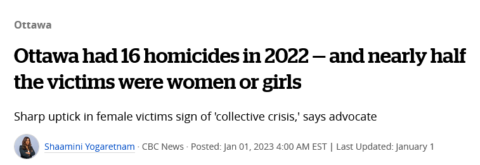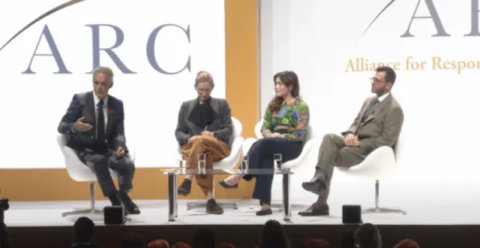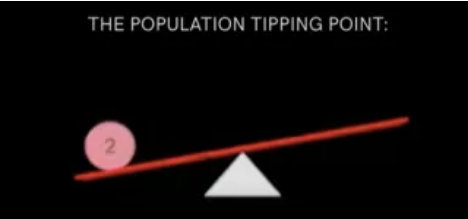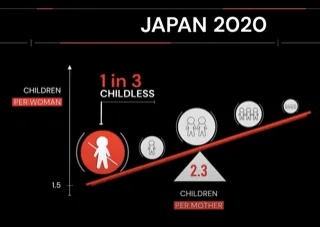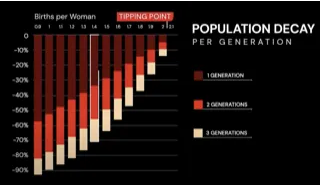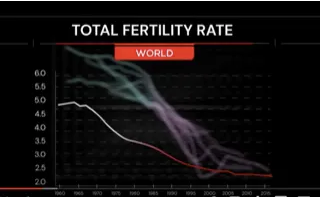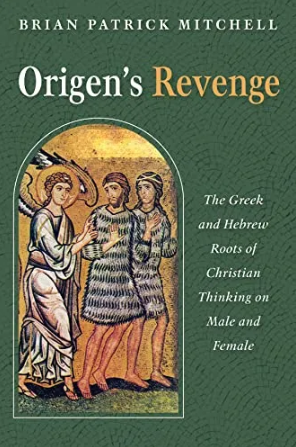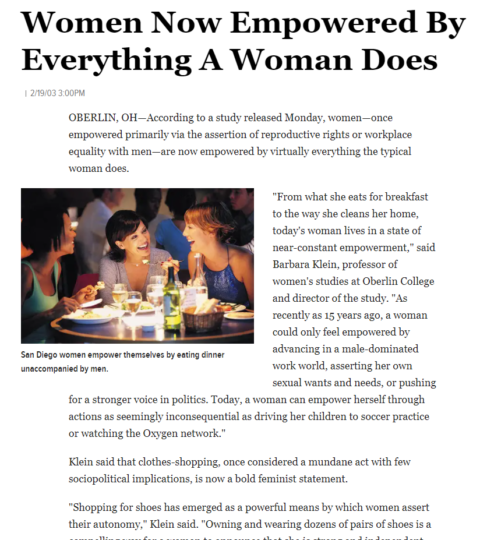Janice Fiamengo with a column that, had it been written by a man, would merit universal condemnation from the mainstream media (instead, if they pay any attention to it will probably dismiss it with hints of “false consciousness” or “Stockholm syndrome”):
For years, activists told us that part of the horror for sexual assault survivors was the fear of not being believed, the feeling that one was alone with an experience no one else understood or even acknowledged. Fair enough. Now, decades into the near-constant discussion of all varieties of such assault, many quite trivial yet treated with great seriousness, women don’t seem to have become any better at dealing with the ostensible horror — quite the opposite. The unending focus on sexual victimization seems only to have created more victims.
A case in point involves the infamous sexual crimes of Dr. Vincent Nadon, a now-disgraced GP at the University of Ottawa Health Clinic, who in late 2018 was sentenced to eight years in prison after he pled guilty to many dozens of counts of voyeurism and sexual assault during a 28-year medical practice. (The exact number of charges was hard to determine, seeming to change in every report). Much of what Nadon pled guilty to — mainly the recording of women via his cellphone while they were undressing or undergoing breast exams — was a type of deeply unprofessional conduct that might have gone forever unnoticed by the victims if one intrepid woman had not seen the cellphone’s recording light winking at her from a cabinet and gone to investigate. There were also allegations of sexual assault nearly indistinguishable in their details from regular medical touching — the main distinction being that the touching was “for sexual purposes”. Witnesses at Nadon’s sentencing hearing spoke of what had occurred, in some cases many years previously, as if it had been the worst possible betrayal.
A report of the sentencing hearing described women wiping away tears as they told of “feelings of powerlessness, embarrassment and even guilt”. Others said they had become distrustful of men after learning of Nadon’s actions. One woman, having been shown by police a cellphone recording made of her in Nadon’s office, claimed that she felt physically ill and “has not been able to go to another doctor, and is uncomfortable undressing, even in front of her husband”. Another woman said she felt “violated and betrayed”, and now “looks for hidden cameras everywhere, is obsessed with locking doors, and has developed a medical condition that can be caused by stress”. Many alleged that they feared seeing videos of themselves on the internet though there is no indication Nadon ever uploaded any of his recordings.
In a separate report about fallout from the charges against Nadon, some women expressed outrage at authorities they saw as complicit in their victimization, with one woman complaining that University of Ottawa Health Services failed to “help [her] tell [her] story and come forward”. This woman, who told how she had not been provided with a gown to wear during a pap smear procedure with Nadon, was also furious at the University of Ottawa for failing to more closely monitor its health service provider. Her anger was sustained and wide-ranging: “Obviously I’m super traumatized. I feel extremely violated and so sick to my stomach. It’s really, really disgusting.” “It’s even hard for me now to find a therapist I can trust.”
I can’t get inside these women’s heads, of course, but their statements seem hysterical and irrational, far in excess of the facts, and perhaps willfully exaggerated in order to garner the maximum of attention and sympathy. It was disturbing to see such statements presented as if they proved something about the severity of Dr. Nadon’s actions. They prove nothing except the climate of alleged female sexual fragility in which we are all now forced to live.
Victim impact statements are often of dubious value in criminal justice proceedings — why should a criminal act be punished more or less severely depending on a victim’s ability to emote in public about it? — but in a case like this, with damsel-in-distress melodrama having already been stoked by multiple media reports at every stage of the investigation, the victim statements took on a particularly staged, formulaic quality. One had to make an effort to remember that many of the complainants would not even have known they were harmed if police hadn’t shown them that they were. Their pain may have been real, but it was also almost entirely self-generated.
The whole story of Dr. Nadon the beloved physician turned super-predator seems to have been largely manufactured, first and foremost by police, who were so eager to find as many complainants as possible that they repeatedly put out calls through the media for more “victims” to come forward. I’ve never seen anything quite like it, with police stating publicly that they feared there were likely more victims, and issuing “a public plea for help”. What did they expect to happen?



